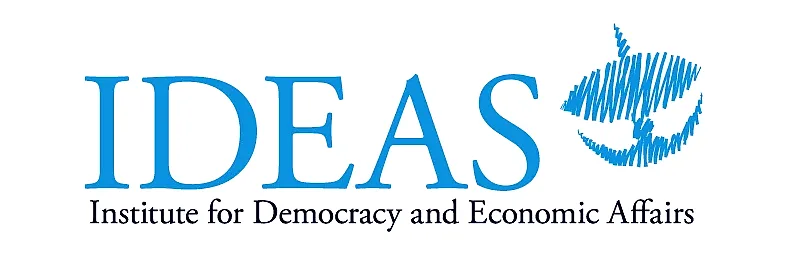
The Institute for Democracy and Economic Affairs (IDEAS) expresses concerns over the reappointment of Tan Sri Azam Baki as the Malaysian Anti-Corruption Commission (MACC) Chief Commissioner for an additional year.
Despite Prime Minister Datuk Seri Anwar Ibrahim’s confidence in the government’s firm stance on good governance, the establishment of a proper mechanism for appointment processes and utilization of Parliament Select Committees (PSCs) is still needed to ensure higher transparency as well as for better checks and balances.
“The strict scrutiny towards appointment processes, particularly for it to be more just and transparent, is a crucial element in restoring public confidence in the system which has seen a substantial decline over recent years,” commented Aira Azhari, Manager of the Democracy and Governance Unit.
“The responsibility should then fall upon the appointers to ensure that those appointed at the helm are individuals of high calibre and with integrity,” she said.
The current contestation towards Tan Sri Azam Baki’s reappointment as MACC Chief Commissioner is in a large part due to allegations surrounding undeclared ownership of shares in several companies, kindling doubts over his credibility.
While his reappointment received no objections from the Prime Minister on grounds of satisfactory performance, this highlights the need for the selection criteria for these public appointments to be more stringent, transparent and above all, more consistent.
“In the UK, the public appointment process has limited discretionary ministerial power subject to the advice of an independent panel. The process is also made transparent where the public appointment competition with a selection criteria is advertised to the public,” Azira said.
“In addition, the general public will be able to participate in the appointment process of critical roles by attending a pre-appointment public hearing by a Select Committee with the candidate list made readily available.
“Public access to the annual reports on compliance to the relevant codes and principles, and real-time update of the selection process is also granted,” she added.
“During the first Pakatan Harapan administration, the decision to establish the PSC on Major Public Appointments was a good step forward towards improving transparency and accountability.
“Unfortunately, the PSC was not properly utilized as the practice of dubious political appointments continued among various Government-Linked Companies (GLCs),” further commented Aira Azhari.
Deputy Research Director Sri Murniati said, “As the government strives to implement more of the target initiatives set out in the National Anti-Corruption Plan (NACP) 2019-2023, the timing has never been more apt for Malaysia to take the issues surrounding the appointment process more seriously.
“With his reappointment, we also urge Tan Sri Azam Baki to prioritize and expedite the implementation of the NACP, as the deadline draws near.”
Among the target initiatives related to appointments listed in the NACP are to introduce a policy on appointing politicians to curb political influence in the process and to have a base guideline for appointments be it for chairpersons, members of the board or Chief Executive Officers (CEO) of statutory bodies, Government Interest Companies (GICs) and Government Established Company Limited By Guarantee (CLBG) (Initiatives 1.3.3, 1.3.4 and 2.1.2 respectively).
As for the several targeted initiatives directly under the purview of the MACC, these include but are not limited to: to revisit and strengthen the current process of integrity vetting for public officials holding positions with high risk/responsibility; to strengthen the elements of human governance, integrity and anti-corruption in continuing professional development programs implemented by relevant Regulatory Agency for Statutory Bodies, GICs and CLBGs and private sector; and to issue a Prime Minister’s Directive in implementing integrity vetting requirement as a selection criterion for top management positions and to govern disclosure of conflict of interest as well as efficiency and transparency in Statutory Bodies, GICs and CLBGs (Initiatives 2.2.3, 2.4.14 and 6.1.1 respectively).
Earlier in March, the Prime Minister stated that he will have no qualms with the next appointment for the post of MACC Chief Commissioner should the process of appointment include referring to a bipartisan Select Committee though this new method for the appointing process would be subject to the progress made in Parliament.
In line with his statement and his commitment to good governance, transparency as well as accountability, IDEAS strongly urges that any reforms to the appointment process mechanisms including the re-evaluation of the roles and scope of powers of the relevant PSCs be hastened to facilitate a better and more transparent system in Malaysia.

ADVERTISEMENT
ADVERTISEMENT








































